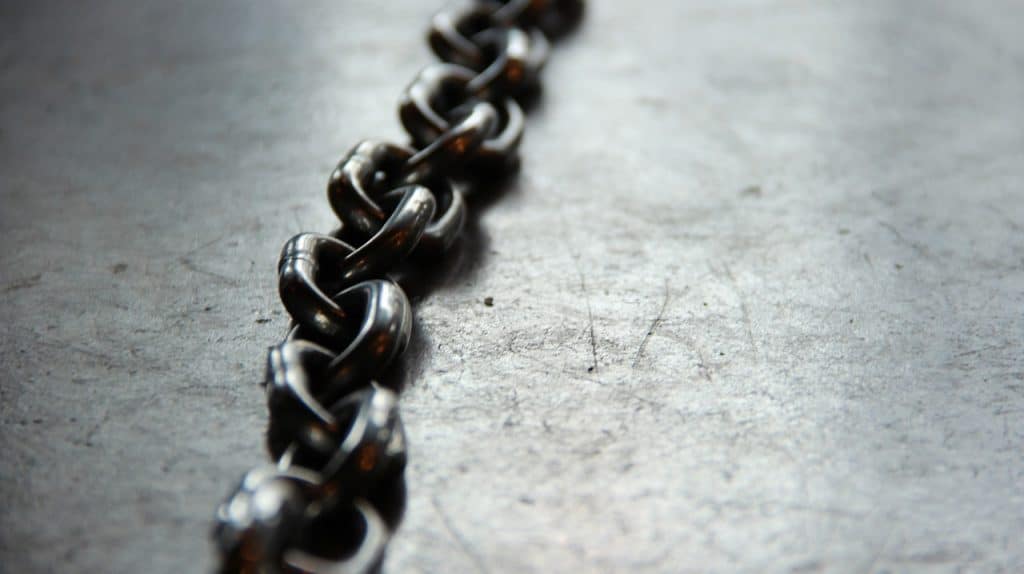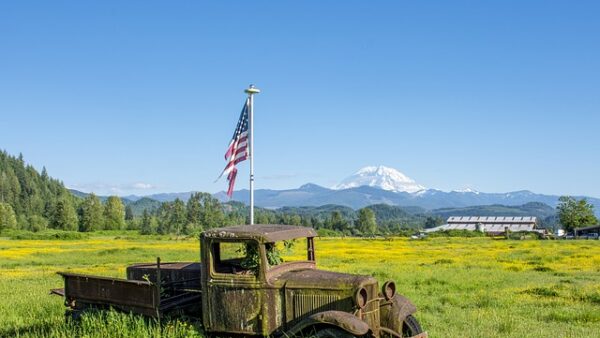Together, ISF and UPOV are working to encourage continued innovation needed to meet the world’s increasing needs.
There are a lot of questions that surround protecting plant varieties. Why do we need to protect varieties? How can we better protect varieties and intellectual property (IP) rights on a global scale? How can we ensure that everything is protected from country to country?
Let’s start with why. The world’s demand for food, feed, fiber and fuel is increasing, and will continue to grow in the coming decades. This puts pressure not only on agriculture but also on our planet. Climate change impacts food producers who must find ways to grow crops sustainably.
Sustainable crop production cannot exist without innovation, as it is through research and innovation that better varieties are developed. But improving plant varieties requires an investment in skill, time and resources. Protecting breeders’ rights is therefore necessary to encourage and sustain the delivery of innovation for the benefit of farmers, consumers, and the planet.
And then how. The most effective IP system balances protection as an incentive for innovation and access to enable others to further improve plant varieties.
That’s where UPOV steps in.
“The UPOV convention provides the legal framework for the protection of varieties,” says Magali Pla, deputy manager of Industrial Property of Limagrain. “It’s an international convention with common rules to achieve harmony amongst different countries for IP regulations while leaving some space for national specificities. UPOV major feature is the breeder’s exemption which allows to use a protected variety for further breeding to create a new variety.”
However, there are some difficulties that UPOV is facing — not every country in the world is a member of the UPOV convention nor are all member States bound by the same version of the UPOV convention, but also, there are some challenges when taking legal enforcement action against infringers in certain member countries.
“There are 75 UPOV members, and of course, there are some countries that aren’t members and that the seed sector encourages to be members,” Pla says. “It’s mainly countries in sub-Saharan Africa and in Asia that are not members of UPOV. Here, the discussions with these countries need to be different to explain that UPOV provides variety protection that encourages the development of new varieties and by extension, foster the creation and growth of a whole seed sector which is needed to provide improved varieties to farmers and address climate change.”
Pla says that’s one thing that ISF is helping to do — strengthening UPOV and encouraging UPOV use and enforcement.
Enforcing Breeders’ Rights
One problem with UPOV enforcement is the enforcement of IP rights, in particular, when heading to court due to infringement of rights.
“Like in other IP rights systems, the burden of proof currently lies on the plaintiff,” says Jean Donnenwirth, Global PVP & EMEA Germplasm Security lead at Corteva Agriscience.
Donnenwirth says that this is more challenging for PVP rights holders, especially with hybrid crops, because the issue about possible counterfeiting activities is often related to their parental lines. And you don’t have direct access to the parental lines — only indirect through the seed of commercial hybrids sold on the market. Therefore, it is more to establish that your inbred line or a lookalike thereof is being used illegally by a competitor.
[tweetshare tweet=”Like in other IP rights systems, the burden of proof currently lies on the plaintiff.” username=”germinationmag”]
“What you can do is run a molecular marker test and compare the profiles of your protected inbred line with that of the competitor’s hybrid and if you find a high match, you can start guessing that something wrong is happening,” he says. “Then, in many UPOV countries, the difficulty is to have these DNA tests be recognized by the judge as valid evidences.”
As an example, Donnenwirth says that in the 1990s, DuPont had a situation in Hungary where its PVP rights were infringed upon, and it was crystal clear from the molecular markers results. However, the judge didn’t recognize that the testing was appropriate, valued nor sufficient to declare infringement nor to even cause further investigations to be carried out.
“It’s unfortunate that UPOV countries don’t recognize the value and proving effect of these molecular marker tests,” he says.
Pla echoes this sentiment. “Seed companies face challenges in enforcement — there are some countries who have adopted UPOV, but don’t prevent illegal practices. In these countries, there’s a need to strengthen the enforcement of their law and to prevent infringement acts. You need to count on the legal side to be dissuasive enough, or else you’ll always run the risk of people not abiding by the law.”
Donnenwirth identifies that enforcement issues also stem from the venue of the infringement action.
“In most countries, you have to litigate in either the place where you’ve identified the counterfeiting activities or the location of the headquarters of the defendant,” he says. “Often, both of them are in rural areas. So if you launch an action, then the judge more often than not has little or no knowledge about plant breeders’ rights system.”
Donnenwirth says it would be a great improvement if each country had a designated court designed specifically to hear cases concerning PVP, with a limited number of judges which have received a specific training in the subject.
Another large issue that Donnenwirth notes is that the definition of an essentially derived variety (EDV) needs to be further defined.
“There is the notion of essential characteristics in the EDV definition of the 1991 UPOV convention, but after 28 years, we still don’t know what those essential characteristics that of essentially derived varieties must have retained are,” he says. “We need to clarify that on a crop specific basis. Certainly flower color is important to ornamental breeders, whereas color isn’t an important trait for corn breeders. Without this clarification of the definition, it makes it much more uncertain to enforce our rights based on the allegation that one is using an EDV of our protected variety without our consent.”
Pla says that EDVs can be better defined as well. “You need to make sure that a newly created variety be distant enough from the parental genetic variety to not be considered EDV. However, nowadays, for example, most of corn breeding programs are integrating the “EDV” constraint thanks to markers, tools and process settled by ISF.”
However, with all the difficulties facing UPOV in the legal realm, UPOV and ISF are looking for better solutions to face the problems.
“ISF is working to establish the tools and needs to enforce UPOV better,” Pla says. “In these tools, ISF also is looking to establish better awareness for all the stakeholders — including the authorities, consumers, farmers and breeders. It’s a huge educational project that cannot be afforded by seed companies alone and needs help from associations like ISF.”
[tweetshare tweet=”It’s unfortunate that UPOV countries don’t recognize the value and proving effect of these molecular marker tests.” username=”germinationmag”]Encouraging Protection and Innovation
Even with a few difficulties in enforcing UPOV, the Convention makes breeders feel protected and encourages innovations in breeding.
Pla says that generally, if the seed sector knows their varieties won’t get the benefit of a protection in a market, they will avoid to market there.
“This can affect breeding strategies, because companies who can afford it will certainly need to adapt their strategies to different markets around the globe that are less risky.”
Donnenwirth agrees that breeders adapt their R&D and production strategies according to the IP environment.
“Certainly we are working considering to invest in priority in countries where we find an up to date PVP law and a good judicial system which is prepared to enforce IP rights,” he says. “A well-implemented UPOV-type protection gives breeders confidence that if they are investing in research and breeding and find something useful that can be exploited successfully, they will be able to recoup their investment over time.
“PVP rights is also a tool to create partnerships in confidence between companies and stakeholders. At the ISF World Seed Congress, there’s a trading floor, where for these three days, people are discussing technologies and varieties licensing to one another. It’s really a tool that is boosting the diffusion of improved germplasm across the world,” Donnenwirth says.
“Innovation is a long process that requests high investment from seed companies but has a positive impact for all stakeholders, and more broadly, the society,” Pla says. “Through the development of adapted crops and with higher yield, it’s a way for us to finally take care of the global land resources. Innovation triggers innovation, and through UPOV, we’re investing in tools to enforce and protect innovation. With UPOV, you need to be new and different which guarantee a certain level of diversity.”
Donnenwirth says this intensive R&D and inter-companies exchanges and licensing of germplasm wouldn’t be possible without PVP and UPOV.
“In the past, you could certainly contemplate that a good new variety or technology could last for a long time,” he says. “Now, it’s no longer the case. Things are moving so much faster, that one way to optimize the return on your research investment is no longer necessarily through your own exploitation only. It’s also through the out-licensing or cross-licensing that you can recoup your research investment quickly. Without UPOV, the only way to protect your PVP new varieties would be through trade secrets, but it’s not always possible and it doesn’t encourage collaboration with third parties.”
To protect innovation and the encouragement of sharing technology and varieties between companies, UPOV must be efficiently enforced to give breeders peace of mind while innovating. UPOV will continue having discussions on how to strengthen PVP rights to encourage more innovation for our world.













